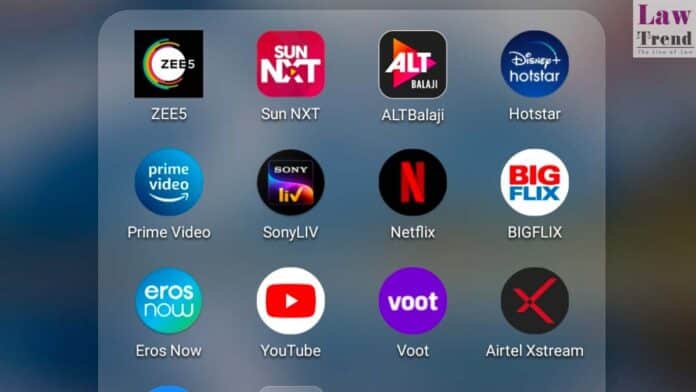A Public Interest Litigation (PIL) was filed in the Supreme Court on Tuesday urging the central government to establish an autonomous body dedicated to monitoring and regulating content on over-the-top (OTT) platforms and other digital media services across India. The petition, initiated by lawyer Shashank Shekhar Jha and Apurva Arhatia, emphasizes the lack of oversight on such platforms compared to traditional media, citing the need for checks and balances similar to those applied in film exhibition.
The petitioners highlighted the Netflix series “IC 814: The Kandahar Hijack” as an example of content that they claim misrepresents historical events, accusing it of downplaying the severity of terrorism and potentially vilifying the Hindu community. They argue that this series exemplifies the broader issue of unregulated content that can spread misinformation or biased narratives without sufficient oversight.
According to the PIL, while films shown in public venues are regulated by the Central Board of Film Certification (CBFC) under the Cinematograph Act, digital content remains largely unmonitored, subject only to self-regulation which the petitioners claim is often ignored. This gap in regulation, they assert, undermines the statutory protections intended to safeguard public interest and maintain social harmony.
The plea calls for the creation of the “Central Board for Regulation and Monitoring of Online Video Contents,” which would be tasked with filtering and regulating videos on various platforms for viewers in India. The proposed body would be led by a secretary-level IAS officer and include members from diverse fields such as the film industry, media, defense forces, legal profession, and academia.
The petitioners argue that the current laissez-faire approach to digital content not only abuses fundamental rights like equality and freedom of expression but also infringes on the right to life by exposing the public to potentially harmful content. They reference Article 47 of the Constitution, which mandates the state to improve public health and prohibit the consumption of harmful substances, to support their call for stricter content regulation.
Furthermore, the PIL criticizes the Information Technology (IT) Rules 2021, introduced by the Union of India and the Ministry of Information and Broadcasting (MIB) to self-regulate OTT platforms, labeling them as inefficient. The petition states that these “unregulated portals are putting everything without any moderation,” which could lead to various societal issues in the future.




